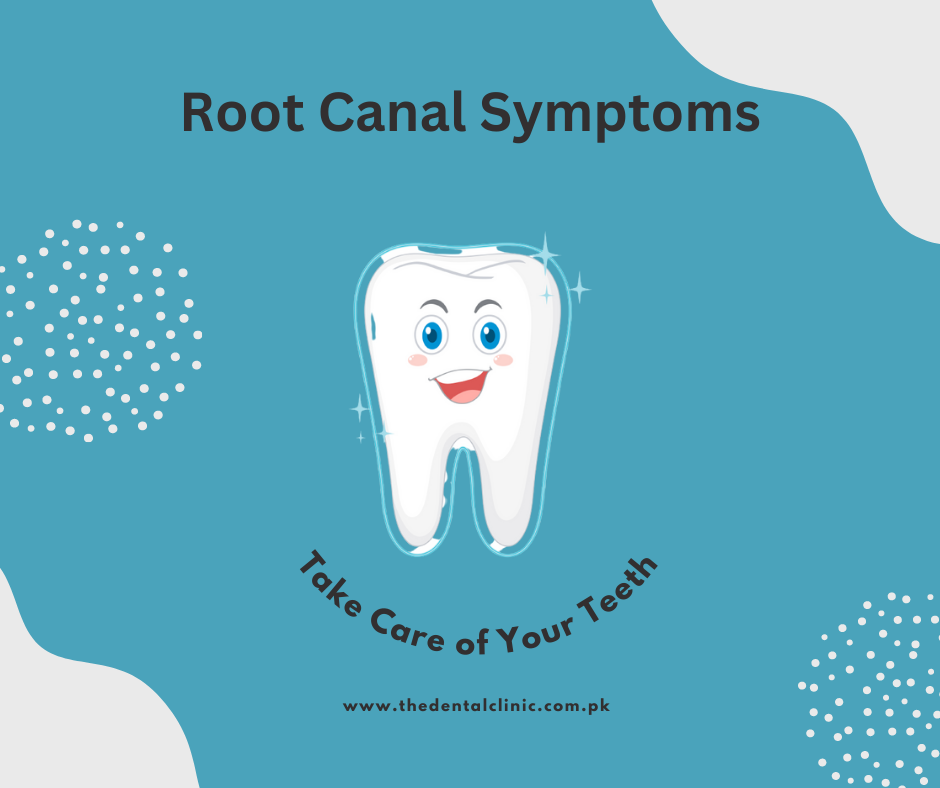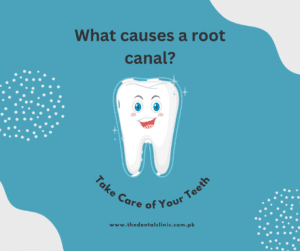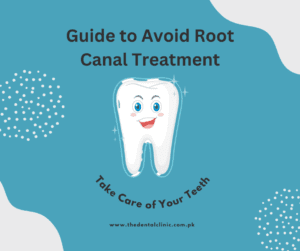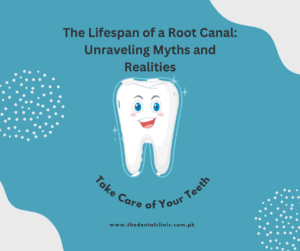
Root Canal Symptoms: What to Look For and When to See a Dentist
A root canal is a treatment used to repair and save a tooth that is decayed and infected. A tooth is made up of two parts, the crown, and the root. The crown is the part of the tooth that is visible in the mouth, whereas the root extends into the jaw and anchors the tooth in its position.
What is the teeth consist of?
Teeth consist of enamel, an outer resilient coating; dentine, forming the majority for structural support; cementum, a robust material covering the tooth’s surface; and dental pulp, a vital tissue at the core facilitating sensory functions and nourishing the tooth, collectively ensuring their functionality and integrity.
What is a root canal treatment?
A root canal treatment is used to save a tooth that is decayed or infected. Tooth decay can cause the nerve and pulp of a tooth to become inflamed, irritated, or infected. Common causes may include deep decay, large filling, repeated dental procedures on the tooth, or a crack or chip in the tooth. A root canal is also advised in case of trauma to the face. Common causes of root canal pain may include:
- Damage to the tooth: chips or cracks that are left untreated can cause tooth decay and root canal pain.
- Tooth decay: although decay begins in the outer layers of the tooth, it can cause pain in the root canal once it penetrates deeper.
- Disease: decay, trauma, cracks, chips, large fillings, and recent dental procedures can cause a tooth’s pulp to become infected. The dentist may also recommend a root canal if the pain is caused by severe tooth decay or pulp infection.
During a root canal procedure, the inside of the tooth is cleaned, and the nerve and pulp are removed. However, in the absence of treatment, the surrounding tooth will become infected, and an abscess may form. A tooth’s nerve is not important for the health and functioning of the tooth. Its only function is sensory, to give a hot or cold sensation to the tooth. Thus, the absence of the tooth’s nerve won’t affect how it works. While root canal treatments are often assumed to be painful, the procedure is no more painful than getting a filling done.
Common root canal symptoms
In some cases, you may not know that your tooth is infected. However, in most cases, you may notice certain symptoms which include:
Pain and sensitivity
If you experience sudden, jarring pain while biting or if you experience this type of pain long after you stop chewing, you may need to visit a dentist to get checked for loose fillings, cavities or cracked teeth. The pain is may also be an indication of inflammation around the roots and decay of the dental pulp. The enamel and dentin around the tooth guard the pulp chamber against bacteria and infections. However, if they are compromised by bacteria, it can cause decay and swelling. When there is swelling, it pushes against the inner walls of the tooth, causing pressure and pain, especially while biting. This is a common sign that you need a root canal treatment.
Another common symptom of root canal treatment is lingering pain that either comes and goes or bothers you all the time. The pain may also radiate to other teeth, the jaw, and your face. The tooth pain is often caused by cavities in the teeth, gum disease and damaged fillings.
Persistent tooth sensitivity is also a clear sign that you may need a root canal. If you are randomly experiencing tooth pain it may be a sign of decaying nerves in the dental pulp. The pain can either be constant or will come back periodically. However, irrespective of what you’re dealing with, see a dentist immediately so they can check what’s going on.
Swelling and tenderness
Swelling and tenderness are other associated symptoms of root canals. It can present differently in all cases. In some cases, it may be accompanied by gum tenderness, whereas in others it can look normal. Also, may present as a big lump that you can easily see or feel. The swelling may sometimes expand to the neck or face in rare cases and often goes hand in hand with a toothache. However, the swelling is not always an indication of an infected root canal. Some symptoms that may point to a root canal infection include:
- Swelling that lasts for a long period.
- A recurring boil or gum-like pimple in the front of or on the root tip.
- The tooth may feel a bit taller than the adjacent tooth.
- Visible swelling.
Discoloration or darkening of tooth
The infected tooth may appear brown or yellow. When there is an infection in the tissues in the root canal, they become dark brown because of limited blood flow, which changes the color of the tooth. A darkened tooth is a sign of a root canal infection. However, the good news is that such a tooth sticks out like a sore thumb! It is a darker shade compared to the rest of the teeth and can be noticed with ease.
Tooth discoloration is an indication of a pathological change in the nerve area of the tooth. A dark-colored tooth typically means that the nerve of the tooth is infected. Similarly, as the infection spreads, the nerve gets weaker. The dead nerve needs to be treated immediately or else it will harbor bacteria and cause oral health problems.
Recurring pimples or abscesses
A recurrent pimple or abscess on the gums near the tooth with or without pain is a sign that presents prior to a root canal. The pimple often releases pus or fluid. However, once the root canal treatment has been completed, the abscess should get smaller and eventually disappear. If the abscess does not subside 7 to 10 days after the procedure, then you may have an infection and need to contact your dentist immediately. Symptoms of a dental abscess may include:
- Intense and throbbing pain in the affected tooth that comes suddenly and also gradually gets worse.
- Pain in the ear, jaw and neck on the side of the affected tooth or gum.
- Pain that worsens when lying down and may disturb sleep.
- Redness and swelling of the face.
- Tender, discolored, loose tooth.
- Red and swollen gums.
- Sensitivity to hot or cold food and drink.
- Bad breath and an unpleasant taste in the mouth.
Pain on chewing and biting
If you’re struggling with toothache or sensitive teeth after eating, then you may have tooth decay. Tooth decay can cause lingering pain after eating certain types of food. For example, many people are sensitive to sweets. Similarly, in the case of large cavities, the food may get stuck in the cavities causing a buildup of pressure and thus, pain. Since a root canal infection can irritate the pulp (nerve) inside the tooth. It can cause flare-ups every time you either bite or chew. Though, not all cavities hurt.
Other causes of pain on biting include a dental abscess. When there is pain on biting in a specific tooth, it can be due to an abscess around the tip of the root. This causes a swelling or cyst inside the bone which puts pressure against the tooth, causing pain when you bite down on the tooth. The abscess drainage swelling comes and goes. Moreover, the only treatment to preserve an abscessed tooth is a root canal.
Less common root canal symptoms
Gum boils or fistulas
A fistula is a reddened or yellowish pimple or ulcer on the gum tissue. It may or may not cause pain, however, bleeds easily and pus may come out if you press on it. A fistula is a serious condition that may cause dental complications and even tooth loss if left untreated. The infection can also spread and destroy the bones of the jaw and face. Similarly, in rare cases, the infection can also spread via the bloodstream and cause sepsis.
Fever and fatigue
If dental infections are left untreated, they can cause chronic fatigue. Thus, if you’re feeling very tired that even a good night’s sleep does not make you feel better, you may have a dental infection. Extreme fatigue is a common symptom of all types of infections. The reason behind this is that an infection causes inflammation in the body and the body’s immune system goes into overdrive. The immune system sends white blood cells to fight this infection and when the body is working so hard, it results in fatigue. Moreover, the fatigue will not get better till the infection is resolved. In addition to this, if this infection spreads, you may develop a high fever and feel generally unwell.
A foul taste or odor in the mouth
Another common symptom of tooth decay is foul taste or odor in the mouth. The foul odor is caused because of the waste bacteria released in the mouth, poor oral hygiene, and decaying food. The debris produces sulfur compounds which also cause an unpleasant smell and bad breath.
Other than foul odor, tooth decay or any other infection in the mouth can also trigger a bad taste in the mouth. What’s more, if the decay is accompanied with pus in the gums, that can also cause bad taste in the mouth. Tooth decay often goes unnoticed because of the absence of pain. However, because of the presence of bacteria, an unpleasant taste is present. Therefore, if you have tooth decay, it is important to consult a dentist, even if the tooth isn’t causing any problems. Many people fail to get treatment and end up losing their teeth.
Difficulty opening the mouth
Trismus or difficulty opening the mouth is a condition in which a person is unable to open their mouth more than 35 millimeters. It is typically caused by radiation treatment of head and throat cancers, cancer, infection, oral surgery, or trauma. Most cases of trismus are temporary and typically last for less than 2 weeks. The types of infections that may cause trismus include peritonsillar abscess, tonsilitis, tetanus, mumps, and other types of abscesses.
When to see a dentist?
The decision to make an appointment at the dentist can be quite difficult for many. However, it is important to see the dentist if the pain is consistent and does not go away in a day or two. Dull and persistent pain is often a sign that it will get worse. Moreover, if the tooth in question is chipped, cracked, or broken, see a dentist as soon as possible. Cracks and chipped teeth are a breeding ground for bacteria, in addition to food getting stuck which can cause decay. Many other tooth-related issues can be addressed at your regularly scheduled appointments at the dentist. Make sure that you mention any discomfort to the dentist during your visit.
Diagnosis and treatment
In some cases, you may not know that your tooth is infected. However, there are certain signs and symptoms that indicate you need a root canal.
- Tooth pain that does not go away: a telling sign that a tooth needs a root canal is tooth pain that doesn’t go away. Many dental problems cause tooth pain, but if the pain is deep in your tooth, you may need root canal therapy. The discomfort also often radiates to the jaw, face, and other teeth.
- Sensitivity to heat and cold: if your tooth hurts when drinking a hot or cold beverage or while eating ice cream, you may need a root canal treatment. Especially if the pain lingers for more than a few seconds.
- Swollen gums: infected teeth often collect pus in the area which causes the gums around the tooth to become swollen and tender.
- Pimple on the gums: some patients may develop a pimple or boil which drains pus and may cause an unpleasant taste and smell.
- Swollen jaw: if the pus does not drain from the site, the jaw may become visibly swollen.
- Tooth discoloration: when the pulp of the tooth is infected it can cause the tooth to look darker. This is because of a poor blood supply to the tooth.
- Pain on applying pressure: if there is pain when you eat or touch the tooth it means that the nerves around the pulp are damaged.
- Loose tooth: a tooth that is infected may feel looser because the pus from the infected pulp softens the bone supporting the tooth.
Need a dentist in Gulshan-e-Iqbal area, Karachi? Schedule an appointment today!
At The Dental Clinic we have the best endodontists in our team who are certified to effectively provide treatment and relief. We are equipped with state-of-the-art amenities and dental technologies at the clinic. To get started, schedule an appointment today, just contact us at 03312048149 or drop by our clinic, Room # 3 & 4, 2nd Floor, Taj Clinics, C-15/1 Block 3 Gulshan-e-Iqbal, Karachi, 75300
FAQs
- What causes root canal problems?
An infected root canal occurs when the bacteria that live in the mouth invade the pulp of the tooth.
- Are there ways to prevent root canal problems?
Early prevention and intervention can save you from getting a root canal. Good oral hygiene, a healthy diet and regular visits to the dentist are the keys to avoiding dental problems.
- Is root canal treatment painful?
A root canal treatment is not painful. The tooth is numbed during the procedure.
- How long does a root canal take?
Depending on the severity of the infection, a root canal treatment may require one or two visits. A root canal can take anywhere between 30 to 60 minutes to complete. If the tooth has multiple roots it can take up to an hour and a half.
- Is a root canal the same as a filling?
A root canal clears bacteria and damaged tissue to save a tooth and relieve pain. Whereas a filling restores the function and cosmetic appearance of teeth.
- How much does root canal treatment cost?
A root canal treatment may cost anywhere between 5,000 to 25,000 depending on the dentist who does the procedure and the materials used. For a more comprehensive breakdown, contact The Dental Clinic on 03312048149 or drop by our clinic, Room # 3 & 4, 2nd Floor, Taj Clinics, C-15/1 Block 3 Gulshan-e-Iqbal, Karachi, 75300.
- Will I need a crown after a root canal?
A crown or restoration is usually needed to be placed in the root canal that has a large filling or the tooth is extensively damaged due to decay.
- Can I get a root canal while pregnant?
Root canal treatment is generally considered safe during pregnancy.
- Are there risks or side effects of root canal treatment?
Post-treatment complications may include swelling, pain, infection, bleeding, numbness or tingling of the lip, gum, or tongue.
- How long does a root canal last?
On average a root canal lasts around 10 to 15 years. However, the lifespan increases if a dental crown is inserted after the treatment.
- What happens if I don’t get a root canal?
If the infection is left untreated, it can cause tooth loss, dental abscesses, sepsis, life-threatening stroke and heart attack.







